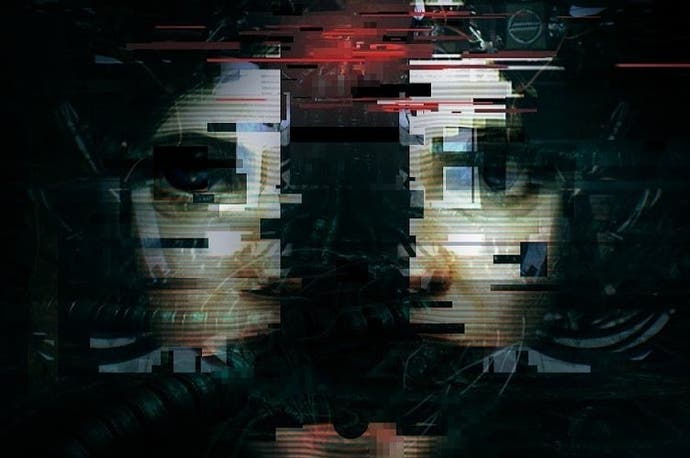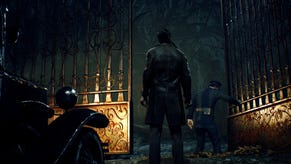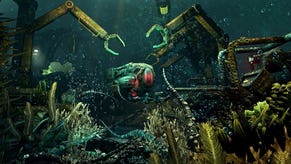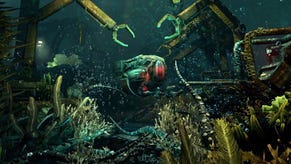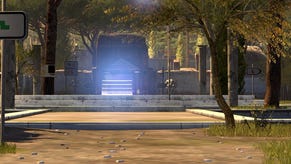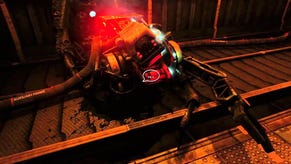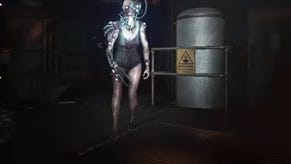SOMA review
Between the devil and the deep blue sea.
It's only been five years since Frictional Games unleashed Amnesia: The Dark Descent on unsuspecting PC gamers, revolutionising horror games in the process. Its combination of utter helplessness, disorientating sanity effects and physics-based interactions made for an experience that was unusually absorbing and truly scary. That it was light on story and simple in mechanics felt beside the point.
In 2015, Frictional follows up its cult hit with a science fiction twist on a similar idea, but it arrives in a market forever changed by its previous game. Today, indie PC games in which you creep through loving rendered labyrinths, running away from monsters and cowering in corners, are impossible to miss. The trend has even cracked into the AAA space, thanks to Creative Assembly's chaotically terrifying Alien: Isolation.
What has Frictional done to stay ahead of the pack? Surprisingly, it's doubled down on the environmental narrative and pushed the horror sideways. That's not to say that SOMA isn't scary - when it wants you to be spooked, you will definitely be spooked - but it deploys the jolts far more sparingly, preferring instead to unnerve you with a story where the real horrors are of a moral and philosophical nature.
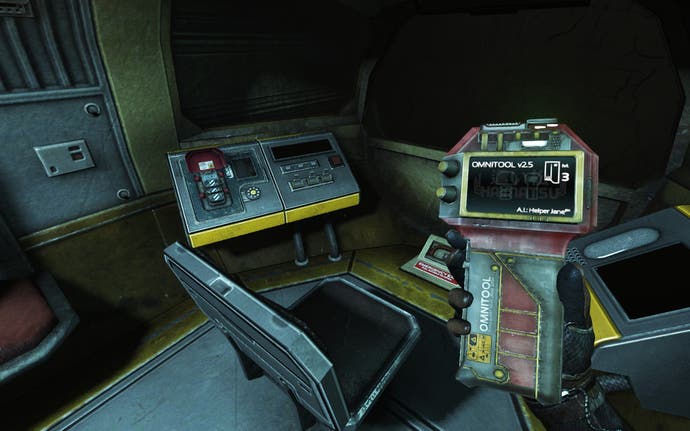
Rather than a creepy castle, this time you're stuck in a decaying research station at the bottom of the Atlantic called Pathos II. It's a testament to Frictional's storytelling skill that any more information than that starts to feel like a spoiler, which is a problem because so much of what makes SOMA so memorable is the way its story meshes with its themes to create an experience which makes you feel uncomfortable in ways that go beyond dripping gore and shuffling creatures.
Suffice to say that your journey takes you through multiple stations of Pathos II, as well as along the sea bed itself, on a mission of both self-discovery and far greater importance. As with Amnesia, your interactions with the world are driven by a robust, if occasionally floaty, physics engine. There's always been a tangible tactile nature to Frictional's games, and that holds true in SOMA as well. Grabbing and pulling heavy doors, lifting and turning objects and levers, there's weight and heft to Pathos II, and it helps to ground you in the space.
Make no mistake, this is not a "walking simulator". That dismissive term is often applied to games like Gone Home and Everybody's Gone to the Rapture, but while SOMA shares some DNA with that strand of narrative adventure, it hasn't let go of its gameplay roots.
It's not a story whose course you can change - though the more you explore and discover, the more the dialogue reflects your deeper understanding of what is happening - but nor are you an abstract presence, drifting through the aftermath of some off-screen tragedy and eavesdropping on the thoughts of the departed. Something terrible has happened, but you are very present in this story, you have real agency and make real choices. Not just simplistic binary "good/bad" decisions, but seriously troubling ethical quandaries that are never easy to live with.
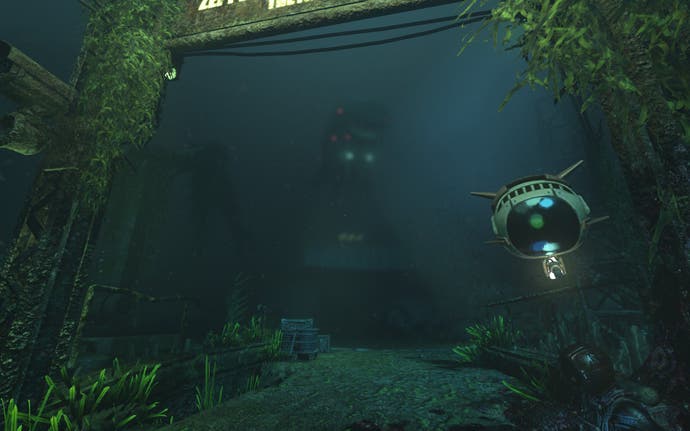
If your choices are hard, the gameplay experience is not. Navigation is never confusing, but nor does it feel like you're being led by the nose. The gorgeous location design is a case study in how to gently guide the player to the right places, while letting them feel they found their way unaided. Subtle lighting and colour cues ensure that whenever you feel like you're on the right path, you almost always are.
The same is true of the puzzles, of which there are many. None are so tough that they form a roadblock to the story, but they all combine to ensure that your journey always has a mental component, and requires you to pay attention to the details of the environment. Solutions are always rooted in the location, and always feel logical. It's this that makes them feel a little easy sometimes - working out the correct sequence of levers, dials and switches to activate a machine is a common theme - but most are just hard enough for you to feel a sense of achievement and satisfaction upon completion. Only a few times does the game stretch too far and require a solution that feels out of reach.
At worst, the puzzles fall into the tired old "find these things to fix this other thing" mould, and there are certainly times when you'll give a weary sigh as yet another transport crashes or breaks down, or another vital device flashes the red light that tells you that a hunt for a power supply is imminent. Annoyance flickers, but it never takes hold for long.
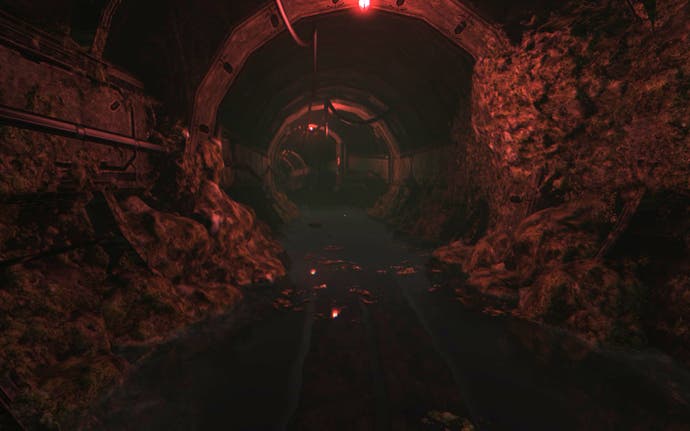
SOMA's most uninspiring element, somewhat surprisingly, is the monsters. They're responsible for the game's most frustrating sequences, and while there's a backstory that makes them strangely sympathetic it's hard to feel too much for their plight when you're being smashed or squelched because of their unpredictable behaviour patterns.
That unpredictability is deliberate, but the intended payoff can be hard to appreciate. Some will attack based on sight, sound or movement, but working out which requires trial and error. Automatic checkpoints are sensibly placed - and you can save anywhere in between - but being killed in what feels like an unfair situation chips away at the game's hard earned immersion. The bits I enjoyed least were the ones where progress meant navigating a murky and confusing maze while avoiding shambling monstrosities. Ironic, given the popularity of Amnesia.
There are definitely moments of frustration along the way, but an assured sense of story and character sees SOMA through. It's just a pity that to explain why that's the case would diminish your own experience of an unusually satisfying and coherent video game narrative. Suffice to say that while the themes being explored are far from new to science fiction, this game puts a unique spin on them and uses your own first-person involvement in the tale to build and deliver a killer payoff.
That Frictional has been able to take such an over-used concept as exploring an abandoned research base, populated by bloody corpses and monsters, and turn it into a sombre philosophical adventure that is also exciting and even funny, is quite the achievement. It may not move the genre forwards much in terms of mechanics, but it spins a story you'll be glad to have experienced.
